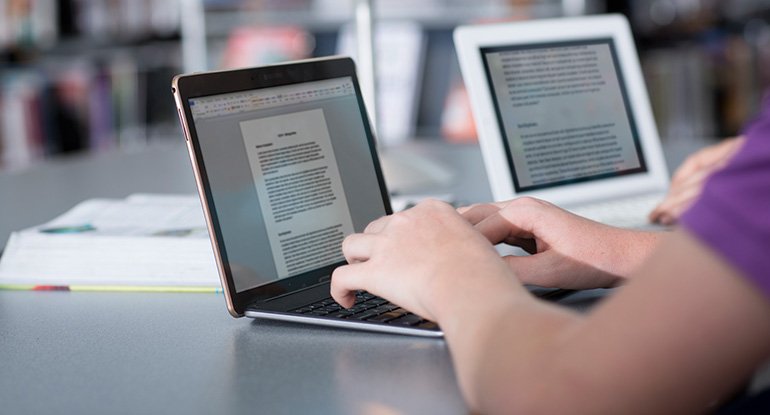The quality of the curriculum is the bedrock that distinguishes high performing schools from low performing schools. The curriculum is by far the most important factor in determining high-quality lesson delivery and consequently the academic performance, learning outcome and results of the students.
No other factor is as vital as the curricular experience of the students in a school!
We have over ninety years of experience in the field of education. The Curriculum Research and Development Centre at Podar, known as Podar Innovation Centre (PIC) develops the curriculum at the following levels:
- Pre-primary age group 3–5 years
- Lower primary age group 6-8 years
- Upper primary age group 9–11 years
- Secondary age group 12–16 years
- Senior Secondary age group 17-18 years
The curriculum, which is based on brain research and neuroscience, is prepared through continuous evaluation of lesson delivery and teaching effectiveness. The latest pedagogies are researched and developed to ensure students receive the best learning solutions and leadership programmes, at par with global teaching-learning standards.
The curriculum proposition is based on “Heuristic Learning”, the highest form of learning for humans, with curriculum design drawn on new-age principles of education. The contents of the curriculum have been carefully drafted to meet the identified skills required by students as per the NEP 2020 and globally accepted high-performance standards. The curriculum focuses on the application of 21st-century skills such as critical thinking, communication, creativity, resilience and collaboration. Research is conducted extensively to suit the education to the changing time.
In the kindergarten groups the prime focus of our curriculum revolves around the emergent strategies of the early years and the purposeful acquisition and understanding of content, skills and concepts in literacy, numeracy and knowledge, and understanding of the world.
Our kindergarten curriculum nurtures and supports children’s interest, curiosity, and their natural quest for knowledge, which leads to the development of skills such as problem solving, inquiry, investigation, discovery, and active hands-on explorations. In our kindergarten curriculum, even though learning is based on play and exploration, it is very well structured and integrated across multiple disciplines of language, math, science, writing, and technology. This is done to meet expectations for holistic goals, development of life skills, dispositions and attitudes, as well as academic achievements.

In our Playschools, the 2-year-olds learn through the Reggio-Emilia way, which is a time-tested Play-way Method used successfully in many countries over the world. The Reggio Approach advocates hundreds of ways in which a child can communicate and the need to learn through experiences.

In our Nurseries, the 3-year-olds learn arithmetic and sensorial activities and exercises of practical life through the Montessori Method.

In our Junior KG, the 4-year-olds follow the Steiner Way using the 3 R’s – Rhythm, Reverence, and Repetition; gardening and cooking activities that help them for Math and Writing of small letters. We conduct phonics and elocution activities that enhance the child’s speech and spelling.

In our Senior KG, the 5-year-olds follow the Reggio-Emilia Method and learn to link things together. They also learn sight word reading and sentence reading. They learn 2-3 letter words and sentence writing. Addition and Subtraction are also included.
UNIQUE ACTIVITIES AT PODAR JUMBO KIDS

WATER PLAY
Children learn in several different ways and one fun way in which they can learn about different concepts and gain new skills is through water play, which is essential for fine motor development and relaxed exploration needs.

Provides experiences that are an essential part of early years learning, allowing children to explore and investigate for themselves. Sand play activities provide ideas showing that sand can develop children’s language and

Parachutes are one of the most versatile pieces of equipment that you can use with young children, which is good for fine motor and gross motor development, enhances listening skills, pro-social behaviour, and the ability to follow instructions.

Block play assists in enhancing recognition of colours, shapes, sizes, and weight; helps enhance eye-hand co-ordination, sequencing, and sorting skills.
Puppet Shows
Puppet shows engage all the nine intelligence types, they expose children to essential language skills, promote thinking skills, engage them in listening to language, and develop essential conflict resolution skills – apt ingredient of the early childhood programme.
Role Play
Engages children to understand the world, their family, people who help them, and aid them in understanding the roles that people play and also develop a child’s growing symbolic play which will help him/her with literacy, numeracy, and other essential skills.
Story Time
Stories help children with their confidence levels, language and learning. Storytime is filled with stories with specific topics narrated using puppets, flashcards, and stick puppets.
Readers make Leaders
A special reading corner – specific books that a child can spend his/her time productively looking at pictures and choosing from several international publications as well as Indian children’s literature.
Glenn Doman Reading
A time-tested, internationally acclaimed method is used to develop sight-reading skills.
Yoga
For relaxation, rejuvenation, fun, and frolic
Drama/Elocution
Enhances the growing language development and expression skills.
Art Exploration
With activities like painting, collage, drawing, clay art, spray painting, tissue art, Warli Art, Madhubani Art, and much more children have a ball getting paint all over their hands and fingers.
Field Trips
Essential to support the child’s growing exploration needs about his/her environment.
Show and Tell
A child’s urge to explore his/her world, his/her environment, and get his/her millions of questions answered is fulfilled in this part of the programme.
DAY CARE
Day care is fast emerging as the need of working parents. With both parents away from home the entire day, the child is either left with a helper at home or in a crèche. In both cases, quality care is not available for the child. At a crèche setting the eating and sleeping needs of the child will be looked after, but not enough care is taken about the emotional or social development. When the child is left with the helper at home, s/he watches TV or whiles away his/her time. More often than not, his/her language development, social development and emotional development suffers because of the lack of proper care.
Therefore, we also offer a day care facility in many of our Podar Jumbo Kids centres so children can learn and grow in a well-researched manner at their home away from home.
At the pre-primary and lower primary level, the curriculum is founded on the “Spiral approach”. It focuses on the skills required by students to develop a sound foundation of core values and attitudes that they will carry through their lives. The learning reflects curiosity, inquiry-based approach, flipped classroom and discovery in a joyful and happy learning environment. The philosophy of head-heart-hand is followed with the best learning practices from New Nordic, EYFS (U.K.), Rudolf Steiner, Reggio Emilia, Frederick Froebel, Maria Montessori and Gijubhai Badheka.
At the upper primary and secondary levels, the curriculum builds further on its progressive approach and deepens students’ comprehension of ideas of self-resilience, independent learning, perseverance, collaboration and critical thinking.
Learning experiences are advanced to nurture students’ creativity and lead them towards inquiry, discussion and self-reflection. They sharpen the students’ critical thinking and reasoning skills and assist them in organizing informed views on crucial topics related to the world and life.
In addition to the above, the curriculum also encompasses our proprietary “Symphonics”, an in-house phonics programme. It is based on the international method of teaching to read, write and spell and paves the way for creating read-smart, spell-smart, write-smart and speak-smart students. Good reading, writing, spelling and pronunciation develop strong language and communication skills at an early age thereby building a strong foundation for healthier brain development, especially of the hippocampus, corpus callosum and Broca’s areas of the brain. This is achieved by using multi-sensory teaching aids and developmentally appropriate teaching strategies. The programme which is introduced at the Jr. Kg. level systematically synthesizes phonics concepts in English language learning up to Grade 5.
At the upper primary level, the curriculum builds further on its progressive approach and deepens students’ comprehension of ideas of self-resilience, independent learning, perseverance, collaboration and critical thinking. Through successive cycles of development, assessment and pedagogies, learning experiences are advanced to nurture students’ imagination and lead them to greater engagement towards inquiry, discussion and reflection. They sharpen the students’ thinking and reasoning skills and assist them in organizing informed views on crucial topics related to the world and life. The curriculum is presented through a gamut of educational materials including the following components:
